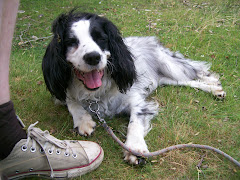In 'A Year in the Merde' * the author goes to a Parisian café on a Sunday afternoon and attempts to order coffee with milk.
Thinking logically, he orders 'un café avec du lait'.
The waitress immediately picks him out as an outsider and charges him the whopping tourist price. As he is reeling in horror at the bill, the chilled-out American at the next table leans over and lets him in on the Big Secret. When in a foreign country, it's not enough to speak a bit of the language. You have to Know the Code. French people who like their coffee with a touch of milk order 'un crème'. This doesn't mean that the coffee has cream in it but - as my French colleague pointed out in St Brieuc all those years ago - if you use that particular code, they'll bring you a nice warm milky coffee in a neat cup and saucer with a little chocolate on the side.
Wouldn't it be nice if francophones the world over used the same code?
The Belgian equivalent is 'lait russe', which still takes me slightly by surprise as I can't understand how a beverage described as Russian can possibly fail to contain a single drop of vodka.
In addition, they have all the usual Italian palaver - cappuccino, latte, ristretto, ecc. - to the extent that sometimes it's hard to tell one cup of coffee from another.
Visiting a local coffee bar this weekend, my friend ordered caffè latte while I - trotting out my best Belgian like a good girl - asked for a lait russe.
The machine hissed and thundered, steam filled the air, the clink of china was heard and the clouds dispersed to reveal our order: one tall glass and one squat little cup sitting roundly in its saucer...
... containing two identical warm milky coffees.
*a dull book in which a rather ordinary English bloke in Paris describes his attempts to get into the knickers of several frighteningly stereotypical Frenchwomen.
Subscribe to:
Post Comments (Atom)





8 comments:
I enjoy your blog, thanks.
Thank you anonymous commentator. You're welcome.
*looks nervously over shoulder since unexpected compliments arouse niggling feelings of suspicion*
Ha, I ordered 'une demi' here after getting back from France, and he started serving me a pint. I flustered 'er, non, une demi demi, vous savez....[gestures]'. He looks at me suspiciously...."Ah....vous êtes française"
Silly people.
hahahaha I got 'vous êtes française?' after saying 'quatre vingt dix' in the greengrocer's. I was quite flattered actually (my French is pretty shocking).
I've never been in France, but in my polish school they taught me "un cafe au lait"/ kawa z mlekiem instead "un cafe avec du lait"?! But it was 20 years ago! Sth changed?
no 'un cafe avec du lait' is wrong, it's what an English person would say translating directly from English. You can say 'cafe au lait'... I've asked for that before and been served a big, milky breakfast coffee... but it's risky, 'un creme' is the best bet.
And ohhhh yes, languages (at least the spoken variety) can change an awful lot in 20 years :) especially Polish, from what I've heard.
And ohhhh yes, languages (at least the spoken variety) can change an awful lot in 20 years :) especially Polish, from what I've heard.
So the PL->EN dictionaries are crappy cause they're outdated...
I think it depends on the dictionary, don't you? (mine is pretty crappy though)
No, I was talking about the spoken word: spoken English is certainly changing all the time and I heard that Polish was too, especially English borrowings and język młodzieży.
Post a Comment